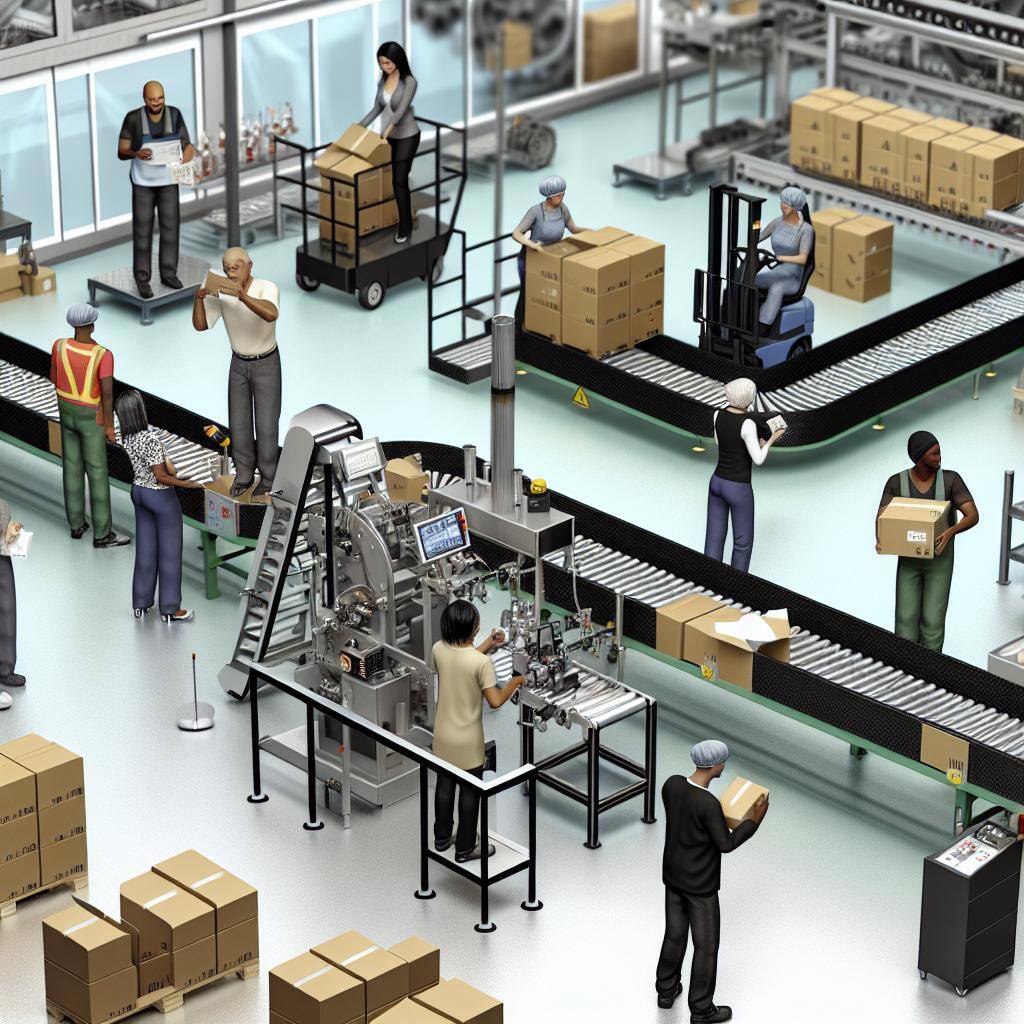
How Focused Factory Work Cells Impact Speed-to-Market Goals
Factories and manufacturing lines are under more pressure than ever to optimize production. Whether the goal is to minimize waste and achieve environmental goals or save costs and keep up with the competitive marketplace, quickly and efficiently bringing new products to the market can help give you an edge over your competitors.
One manufacturing strategy that helps enhance speed-to-market is implementing focused factory work cells. But what are work cells, and what benefits does this provide for your product?
Definition and Overview of Focused Factory Work Cells
Instead of a sprawling operation, focused factory work cells consolidate the necessary resources, equipment, and workers in one area to optimize the production process. By designating particular products or product families to specific areas within the manufacturing facilities, you can minimize the time and energy wasted moving different parts of the products over a larger area.
The concept of focused work cells isn’t new, but it’s gained immense popularity thanks to the combination of automation and the Internet of Things (IoT). Cellular production brings all the production stages into a single location without risking a complete disconnect from the rest of the supply chain.
Your typical work cell design consists of multiple manufacturing workstations, each with a specific role in the production line. How these stations are arranged and allowed to interact is known as a cell layout, with the U-shape being the most common. Smaller units allow for better quality control and greater adaptability, as you can target specific parts of your production line to upgrade or modify.
The Impact of Focused Factory Work Cells on Speed-to-Market
While there are numerous benefits to adopting the focused factory work cells model, it’s most often used to accelerate speed-to-market and keep up with customer demand.
Quicker Market Entry for New Products
Switching to a work cell-based model can significantly reduce the time it takes for new products to reach the shelves. An entire work cell organized around a single type of product’s needs allows for more efficient manufacturing without the delays that usually occur with more segmented production processes.
One key benefit of manufacturing cells is reduced time. Because each cell works as an autonomous unit, the necessary tools and materials can be set up independently from the rest of the factory’s operations. This level of flexibility is essential for responding to market demands or introducing new products.
Moreover, cellular manufacturing fosters a team-oriented manufacturing environment where workers are cross-trained in all operations.
Enhanced Product Quality and Reliability
In addition to improving production speed, allowing a group of cross-trained employees to work together in a single cell ensures that products undergo rigorous quality checks before they ship to the customer. When you have a physical layout with specific requirements in mind, you can keep highly sensitive steps within view so workers can more easily detect issues before they compound down the line.
Limiting workers to the production of a particular type or required manufacturing services familiarizes them with the layout of the work cell and the manufacturing process. This concentration of knowledge and skills means workers have a more nuanced understanding of the production process and can contribute to higher levels of craftsmanship and attention to detail.
Workers can also be encouraged to apply lean methodologies, emphasizing the importance of creating a continuous flow that minimizes waste and maximizes productivity through constantly improving and refining. That way, your products not only reach the market swiftly but also maintain a standard of quality that sets them apart from the competition.
Personalized Solutions Tailored to Specific Product Needs
In the segmentation of focused factories, each cell can be readily reconfigured to accommodate specific product needs or to adapt to changes in customer preferences. This level of customization is difficult to achieve in traditional layouts.
Furthermore, the design and organization of lean manufacturing workstations facilitate the creation of product variants or products that share the same manufacturing operations, reducing the time to receive order lots and helping to prevent holding safety inventory for future requirements.
How Time Plays Its Part
Time is one of the most crucial elements in maintaining a competitive edge in the market. With focused factory work cells, the concept of time is intricately woven into each aspect of the manufacturing process and is made a top priority.
By eliminating unnecessary movement, reducing cycle times, and concentrating worker expertise, products can be completed in a fraction of the time compared to a traditional factory layout. This efficiency accelerates production and allows for more rapid iteration and refinement, ensuring that new products are market-ready as quickly as possible.
Work cells are also optimized for resource efficiency. From the physical layout to the sequencing of tasks, every detail is considered to reduce wasted time and material.
Leverage Crescent Industries’ Forward-Thinking Approach
If you seek a molding partner to help bring your products to market faster, Crescent Industries can help you achieve your goals. We’re a USA-based and employee-owned plastic injection molding company that assists manufacturers in the medical, pharmaceutical, dental, defense, and industrial markets through custom-molded components and devices.
Contact us today and let us take the manufacturing of your product to a whole new level of speed and accuracy.
Related Articles
-
Mar 19, 2025
Top 6 Advantages of Injection Molding for Your Project
Read MoreInjection molding — the process of injecting molten resin into a mold — is one of the most...
-
Feb 19, 2025
Injection Molding vs CNC Machining: Which Method to Choose?
Read MoreEvery year, humans produce and use countless plastic products in various shapes, sizes, and...
-
Oct 03, 2024
Injection Molding Uses: Exploring Applications Across Industries
Read MoreInjection molding is one of the most versatile manufacturing processes, with a wide range of...
